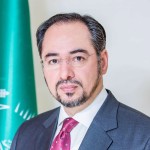Afghan Foreign Minister’s Abrupt Exit Leaves Heads Scratching
 Michael Hughes
Michael Hughes
November 2, 2019
It is impossible to decipher the true motives that drove Afghan Acting Foreign Minister Salahuddin Rabbani to suddenly resign from his post although his allegiance to CEO Abdullah Abdullah, President Ashraf Ghani’s primary electoral opponent, is likely a factor. However, there are also other reasons to be considered including the reality that he was legitimately fed up with the degradation of government institutions or the fact that at least one of those institutions accused the foreign ministry of perpetrating fraud.
On October 30, Ghani tapped deputy Foreign Minister for Political Affairs Idrees Zaman to replace Rabbani who a week prior announced he was stepping down – a sudden transition that appears to have already affected the conduct of Afghan foreign relations. For example, Afghan parliamentarians have blasted the foreign ministry for failing to address recent tensions with Pakistan and lacking proper authorities to resolve the issues.
“In view of the differences that exist within our government and the lack of authority by the Ministry of Foreign Affairs towards tackling such issues: these are the reasons that prevent us from acting in the right way when it comes to cross-border issues,” lawmaker Abdul Zahir Tamim said as quoted by Tolo News on November 1.
According to the report, Tolo News correspondents “made consecutive efforts to seek a comment from the Ministry of Foreign Affairs, but the ministry did not respond.”
Point being, one would hope that Rabbani had good reason to make such a dramatic decision given the not so unforeseeable ramifications.
But first let us address the timing of the resignation which is obviously suspicious given the Afghan election commission is currently tallying votes from the first round of the presidential contest. Many expect, when the results are finally announced likely in mid-November, that Ghani and Abdullah will be the two left standing for a final runoff.
The head of the foreign ministry quitting in disgust at this particular point in time, to be sure, reflects poorly on Ghani. Moreover, Abdullah seized upon Rabbani’s conveniently-timed departure to incorporate into talking points attacking Ghani’s office for its alleged poor work environment.
One could easily accuse Rabbani of political shenanigans based on the circumstances and timing the exit to undermine Ghani in the eyes of voters ahead of the next election round. After being in the position for five years, it is hard to believe he could not have waited a few more weeks before bowing out.
The rather ambiguous resignation letter Rabbani posted on his Facebook page gives only bare hints about the nature of his beef with Ghani’s office, but a couple terms do pop out. For one, he accused the Afghan president’s office of “creating parallel structures” and expressed concern over “destruction of government institutions.”
There is a ring truth to some of the allegations insinuated in Rabbani’s farewell letter to Ghani, especially in light of countless watchdog and inspectors general reports that have excoriated the Afghan government for corruption including, recently, allegations of advisers receiving unreported salaries from foreign countries.
However, what is even more interesting is the fact Rabbani’s foreign ministry itself recently had a run in with one of those institutions – an anticorruption watchdog to boot.
In early August, the Independent Joint Anti-Corruption Monitoring and Evaluation Committee (MEC) released a report claiming that at least 200 Afghan diplomats are “missing” who had been assigned in different missions abroad over the past decade, according to Tolo News.
In addition, the report said that the appointment of employees for the Afghan consulates and embassies worldwide became a source of “political pressure, extortion and rewards.” About 15 percent of the department’s 1,060 employees had undergraduate certificates unrelated to foreign affairs work with 8 percent unfamiliar with diplomacy while about 400 were hired illegally, the MEC said.
The Ministry of Foreign Affairs rejected the report as biased and one-sided and claimed the authors of the report were seeking retribution for not being hired by the ministry.
Not to mention, last month, in light of the report, Afghanistan’s Presidential Palace ordered an assessment of the foreign ministry but Rabbani refused to allow the MEC to probe allegations of corruption. Ghani’s deputy spokesperson Latif Mahmood slammed Rabbani and Abdullah for questioning the MEC’s motives.
“The argument raised by the CEO’s office that the steps were based on favoritism and bias, and were contrary to national interests, is groundless, and we reject the claims,” Mahmood said as quoted by Tolo News.
There was always obvious dysfunction and division within Kabul’s so-called Unity Government and corruption appears to have left hardly anyone untouched. And after all is said and done, it is impossible to make any clear conclusions and determine which side is telling the truth – although somewhere in the middle reality may lie.
Besides, Ghani’s office degrading institutions and Rabbani pulling a political stunt need not be mutually exclusive.
